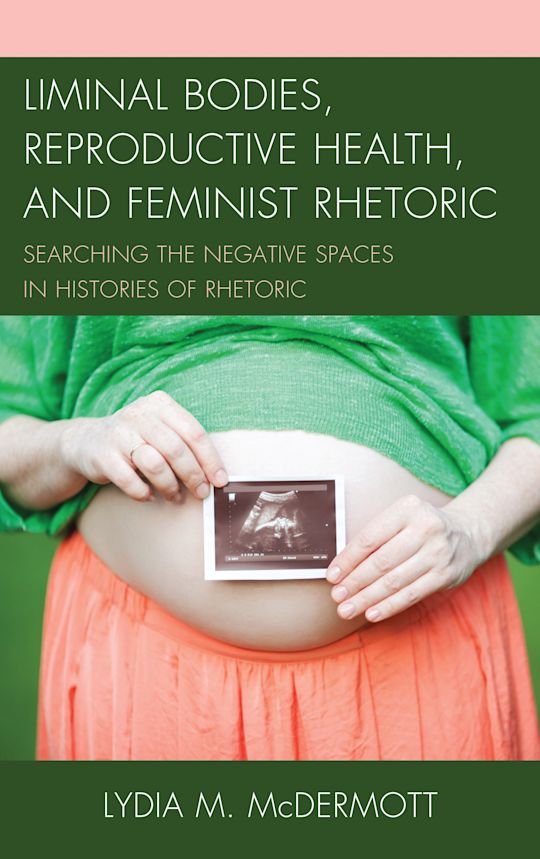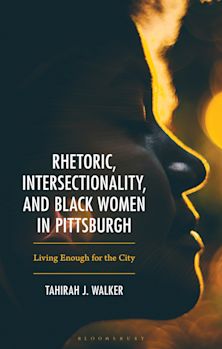- Home
- ACADEMIC
- Communication Studies
- Rhetoric
- Liminal Bodies, Reproductive Health, and Feminist Rhetoric
Liminal Bodies, Reproductive Health, and Feminist Rhetoric
Searching the Negative Spaces in Histories of Rhetoric
Liminal Bodies, Reproductive Health, and Feminist Rhetoric
Searching the Negative Spaces in Histories of Rhetoric
This product is usually dispatched within 2-4 weeks
- Delivery and returns info
-
Flat rate of $10.00 for shipping anywhere in Australia
You must sign in to add this item to your wishlist. Please sign in or create an account
Description
Liminal Bodies, Reproductive Health, and Feminist Rhetoric posits rhetoric and gynecology as sister discourses. While rhetoric has been historically concerned with the regulation of the productive male body, gynecology has been concerned with the discipline of the female reproductive body. Lydia M. McDermott examines these sister discourses by tracing key narrative moments in the development of thought about sexed bodies and about rhetorical discourse, from classical myth and natural philosophy to the eighteenth- and nineteenth-century decline of midwifery and the rise of scientific writing on the reproductive body. Liminal Bodies offers a metaphorical method of invention and criticism, “sonogram,” that emphasizes the voices and bodies that have been left on the margins of the dominant histories of rhetoric.
Table of Contents
Part I: Echo-Location: Classical Conceptions
Chapter 1: Wondering Wombs: Conception Consumed
Chapter 2: Echolocation and Ventriloquism
Chapter 3: Ambiguous Forms: Sonogram of a Sophist
Part II: The Maternal Imagination of Sonogram
Chapter 4: The Mêtic Midwife
Chapter 5: Genres of Generation, Reproduction Instructions
Chapter 6: The Monstrous Imagination of Mêtis
Conclusion: Reverberations
Product details
| Published | 11 Apr 2019 |
|---|---|
| Format | Paperback |
| Edition | 1st |
| Extent | 190 |
| ISBN | 9781498540483 |
| Imprint | Lexington Books |
| Dimensions | 224 x 150 mm |
| Publisher | Bloomsbury Publishing |
About the contributors
Reviews
-
McDermott’s text presents an interdisciplinary and intersectional sonogram rhetoric that works to “listen as well as speak, and always transcends its own boundaries” by “helping to construct more eidolons” (155). This approach has exciting future research implications for analyzing the ways we “form rhetoric, practice scientific inquiry, and value certain bodies over others,” and should be considered a valuable resource for rhetoricians and technical communicators interested in pursuits of reproductive justice.
Rhetoric Review
-
The best audiences for Liminal Bodies are those interested in the rhetoric surrounding feminine health, either as scholars of health, of composition, or of health policy. The book will also appeal to male readers new to feminism and seeking a civil but implicating tutorial. Hopefully [there will be] a sequel to her marvelous book.
International Journal of Feminist Approaches To Bioethics
-
This beautifully written, deeply and eclectically researched book expands the fields of embodied rhetoric and disability studies. Historical and personal, reflective and political, careful and empowering, the reader is left listening for rhetorical echoes and reverberations wherever maternity, embodiment, and ability are invoked—and whenever the normative character of these concepts is ignored. Scholarly books should all be written so resourcefully, artistically, and honestly.
Jay Dolmage, University of Waterloo
-
Liminal Bodies, Reproductive Health, and Feminist Rhetoric is well-written and powerful. This book provides a compelling exploration of the feminine and hysterical echoes reverberating in the recesses of the rhetorical tradition and of the connections between reproductive and verbal power. McDermott's development of ‘sonogram rhetoric’ as an analytical lens is an important contribution to the field of rhetoric and composition, and one that promises to have wide application.
Marika Seigel, Michigan Technological University



































